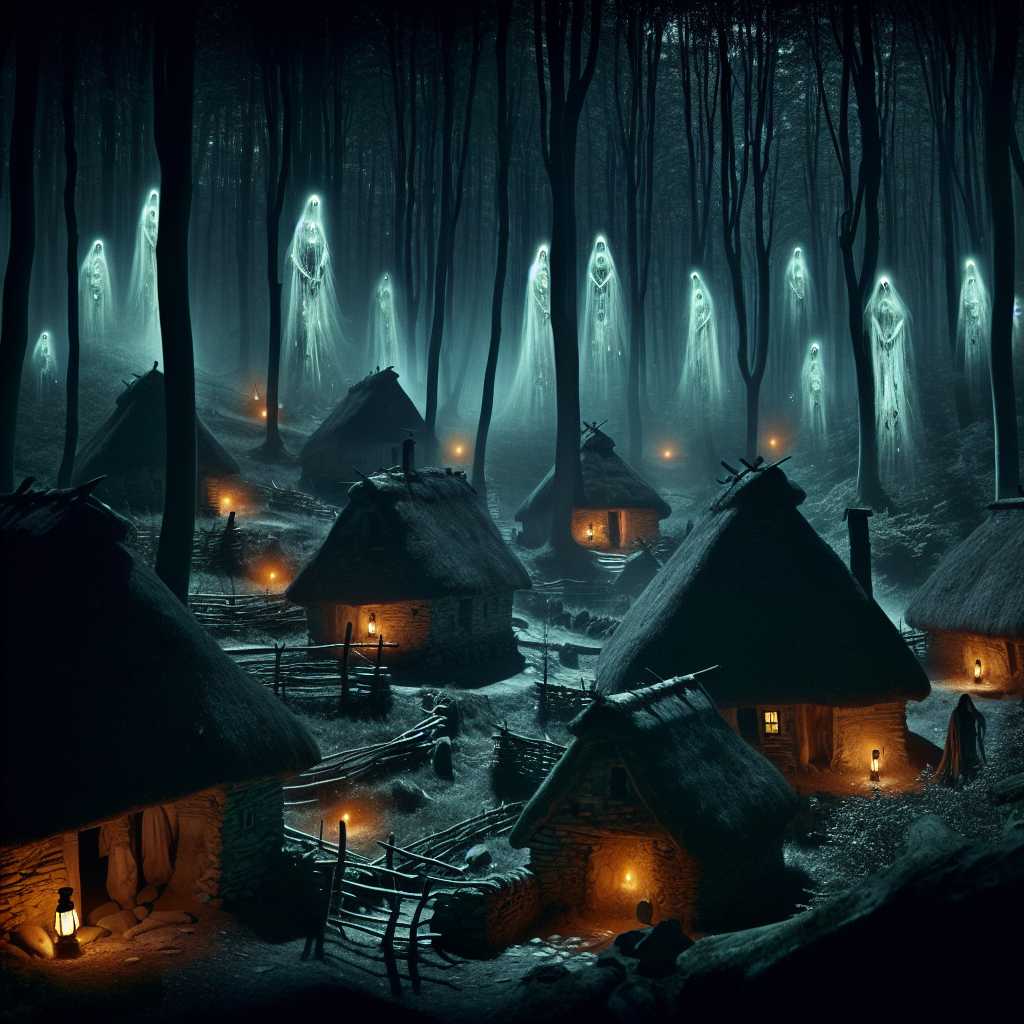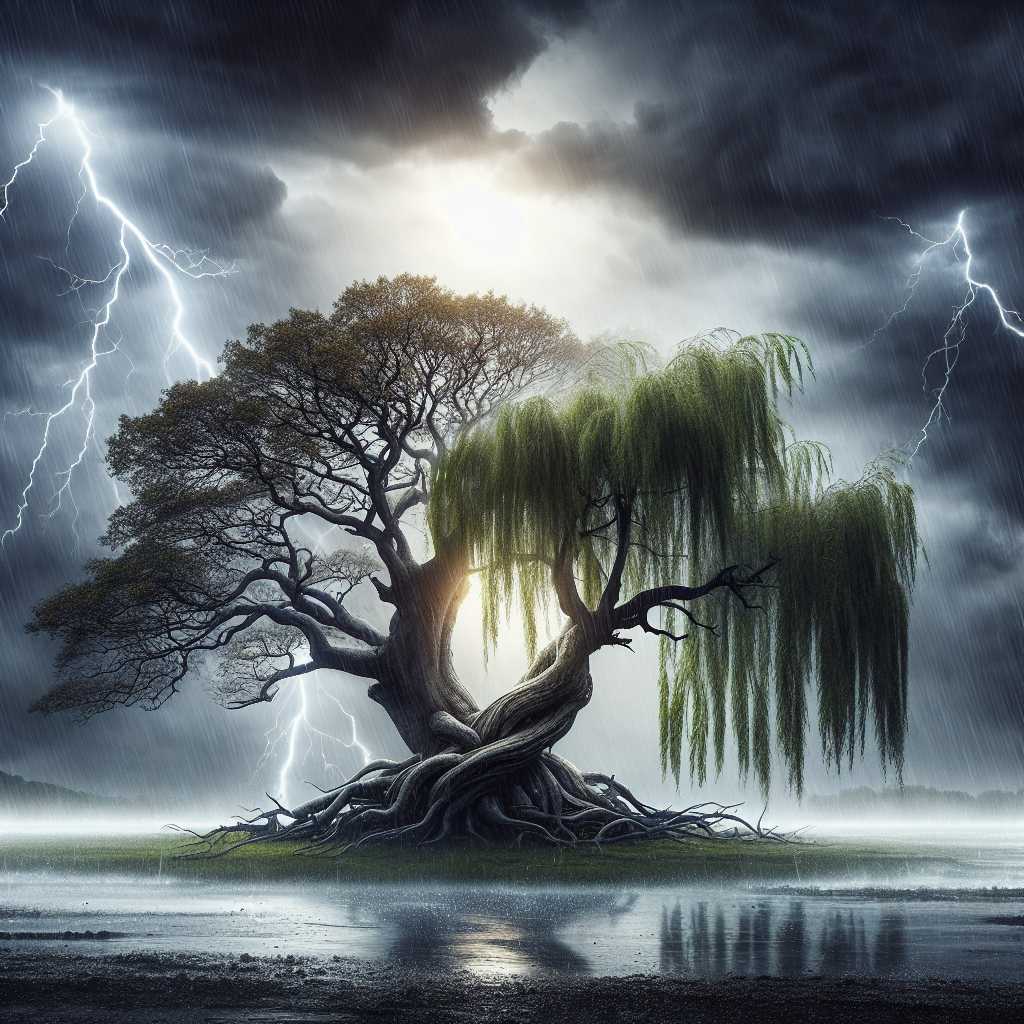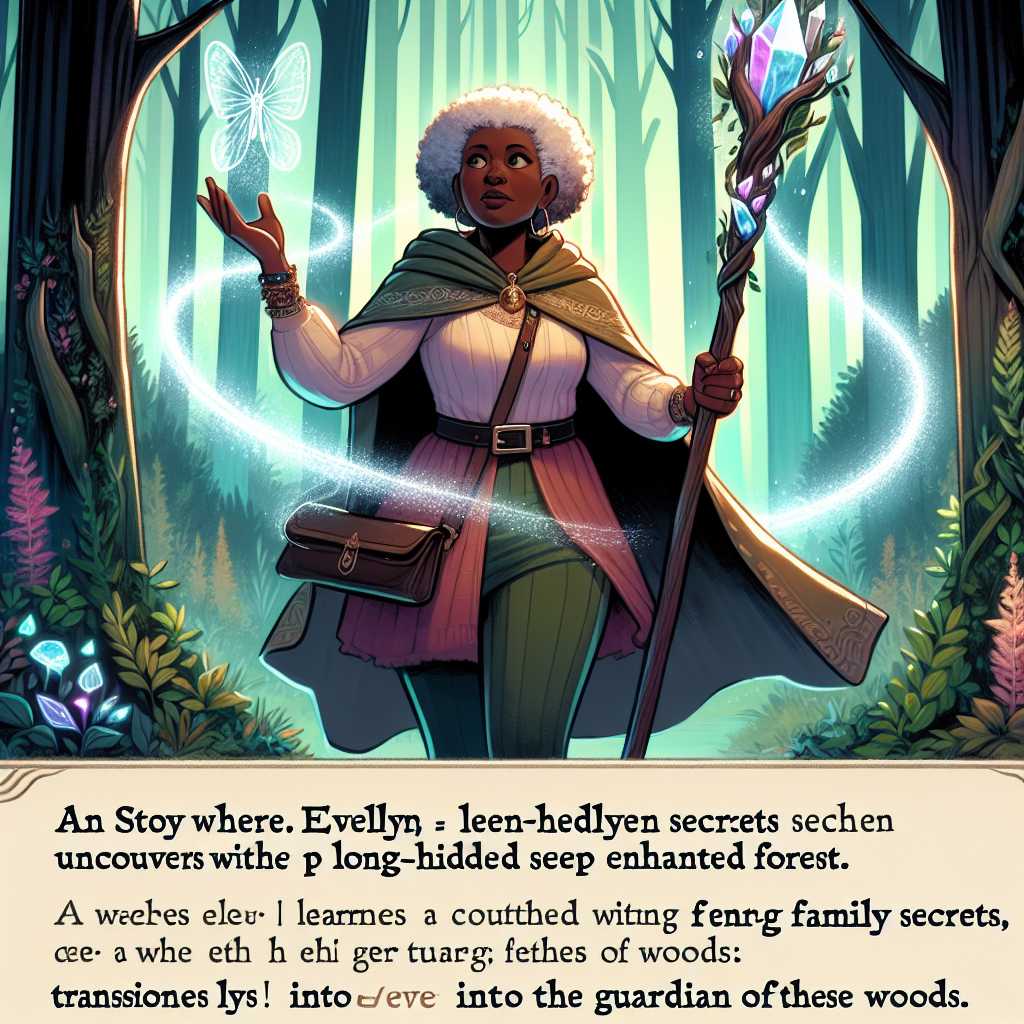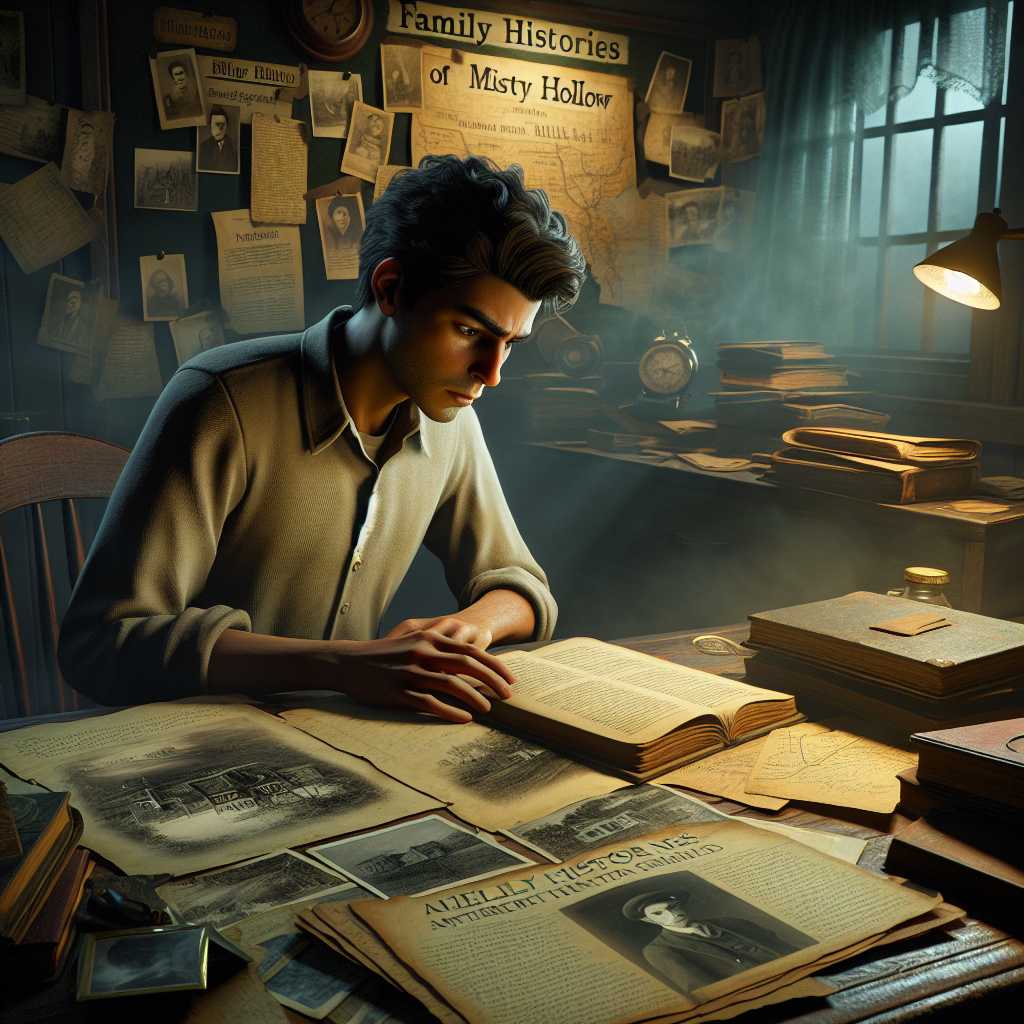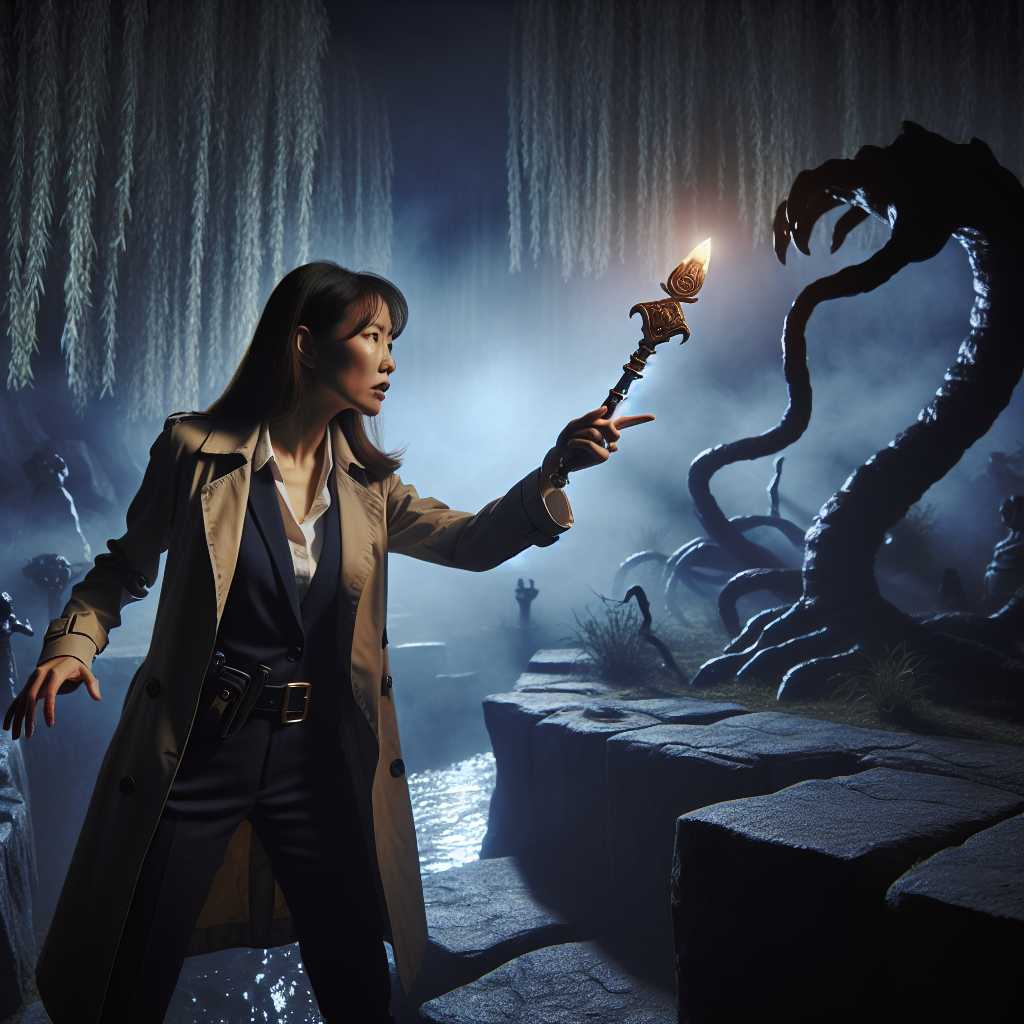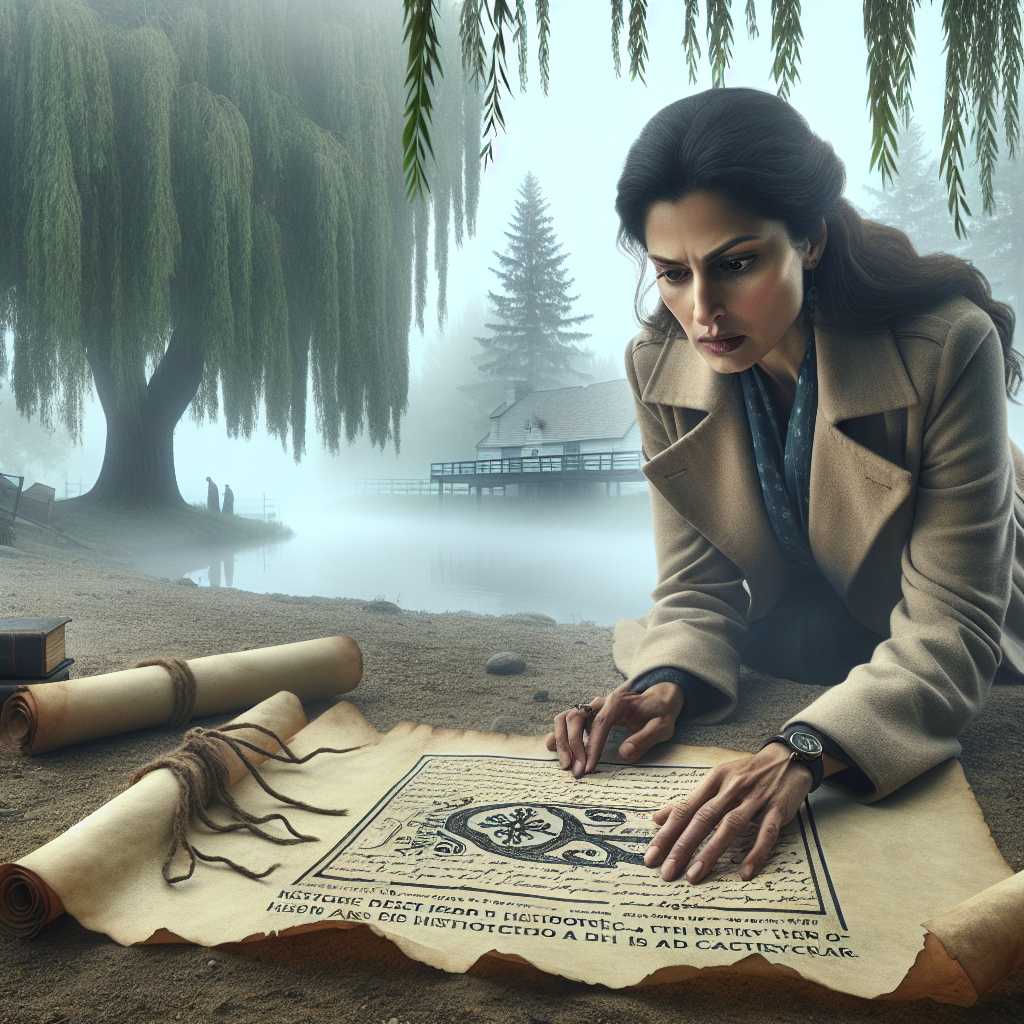
In the quiet town of Willow Creek, nestled snugly between dense forests and rolling hills, tales of mystery rarely surfaced. It was a place where whispers of the wind were more common than whispers of intrigue. But that all changed when the shadows of a crime cast their somber veil over the heart of the community.
On a fog-laden morning in October, Mrs. Ellen Darcy, the town librarian, found herself facing an unimaginable scene. Arriving at the Willow Creek Library to open its creaky wooden doors for the day, she discovered that the grand oak tree outside, under which generations of children had played, bore a macabre burden: the lifeless body of Dr. Aaron Bennett.
Dr. Bennett was no ordinary victim. He was the town's beloved historian, a fountain of knowledge who had a penchant for uncovering the buried secrets of the town's past. Now, his own secret lay in unraveling the mystery behind his untimely death.
By noon, the townsfolk had gathered around the police barricades, a sea of worried faces. The rumor mill churned fervently. "Murdered," suggested one old timer, with a voice as gravelly as the paths that crisscrossed the hills. "A suicide," speculated another, pointing to some unresolved troubles in the historian's recent lectures.
Detective Laura Collins, known for her razor-sharp wit and an acute sense of justice, was called in from the neighboring city. Tall and composed, she arrived at Willow Creek with determination burning in her eyes, ready to lift the shadows that had settled over its people.
That evening, as the sun dipped below the horizon, she sat in the dimly lit library, the smell of old books and dust merging with the cool autumn air. She combed through Dr. Bennett’s recent work, seeking clues. A letter slipped midway through a notebook caught her eye. Penned in Dr. Bennett's tidy script, it read:
"Some truths are too dark for the light of day. They whisper in the shadows, beckoning those who dare to listen. —AB"
This cryptic message, combined with murmurs of Dr. Bennett's recent fixation on a scandalous incident from the town's past, painted a picture of a man haunted by his discoveries. It seemed he had uncovered secrets some would rather leave buried.
The detective spent the next few days interviewing anyone who had crossed paths with Dr. Bennett in the weeks leading to his death. She spoke with Clara, the young and ambitious journalist who had admired him, often spending hours in the library discussing theories about the town's lesser-known histories.
"He mentioned something about a cover-up related to the old blacksmith's shop," Clara confessed, her voice trembling. "Said it was linked to the founding families and might change everything we know about Willow Creek."
This revelation piqued Detective Collins’ interest. The blacksmith's shop, an artifact of a bygone era, had long been closed, standing as a quiet sentinel on the town's edge. Rumored to house secrets beneath its cobwebbed eaves, it became her next destination.
Accompanied by the townsfolk's mounting tension, Detective Collins made her way to the shop one crisp evening. The air was filled with the scent of fallen leaves and impending rain. With a creak, the heavy, iron-banded door swung open, revealing shadows that danced with the beam of her flashlight.
Inside, amidst piles of rusted tools and the ghostly outline of an old forge, the detective found a hidden trapdoor. It led her into a world below, a dusty cellar filled with boxes of forgotten town records and artifacts. Amongst them, she unearthed a collection of journals detailing the lives of Willow Creek's founders, chronicling their ascent to power through means both fair and foul.
One journal in particular, authored by the town's founding mayor, recounted a story of betrayal and greed, implicating the prominent Fitzpatrick family in a series of dubious dealings that secured their legacy at a significant cost to others. The last entry, dated over a century ago, was chilling:
"Their silence ensured my triumph. But shadows linger in houses of stone. Should anyone find this, know that history is written by the victors alone."
Armed with this revelation, Detective Collins returned to the surface, her heart racing with the weight of discovery. She realized that Dr. Bennett had been on the brink of exposing a century-old truth, a secret some had likely killed to protect.
Later that night, under the village council's wary eyes, she presented her findings to the townsfolk gathered in the square. The truth about Willow Creek's past and the likely motive behind Dr. Bennett's death electrified the air.
As dawn broke over the town, the detective reflected on the shadows from which Willow Creek now emerged. Though justice for Dr. Bennett seemed elusive, the light cast upon history's dark corners allowed the community to begin anew, mindful of the past, but no longer under its oppressive weight.
Later events would prove her right as Abby Fitzpatrick, a descendant of the family, confessed to feeling threatened by Bennett’s discoveries. Her actions, driven by misplaced loyalty to her ancestors, had aimed to preserve what she believed was her rightful heritage. But with confession came forgiveness, and a sense of closure enveloped Willow Creek.
Thus, in the small, silent town where stories of crime were rare, the tale of The Whispering Shadows unfolded and concluded. It left the villagers contemplating the fragility of truth and the enduring light cast by those brave enough to uncover it.



